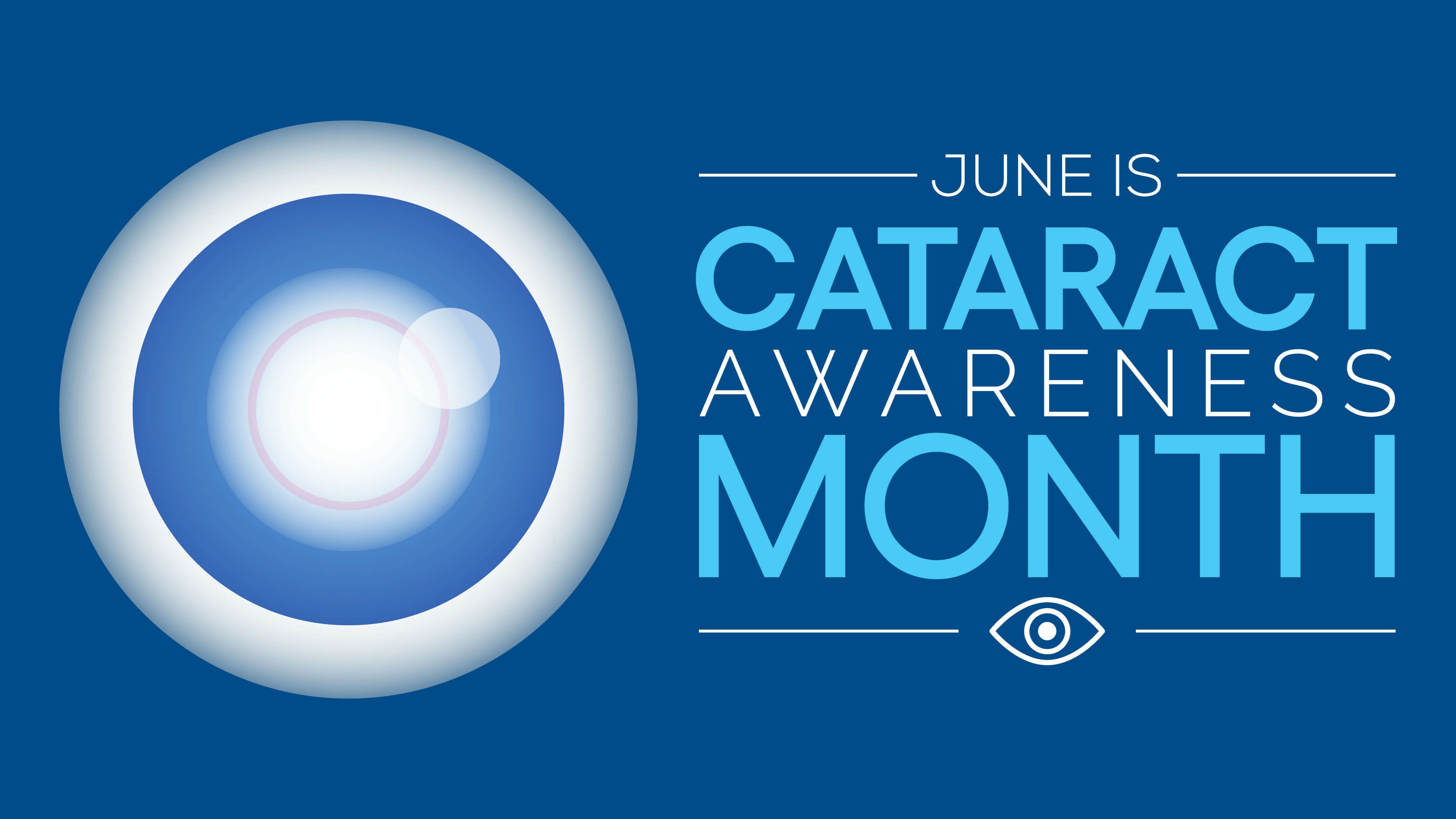June is Cataract Awareness Month
&srotate=0)
June is Cataract Awareness Month! This is a great month to remind people that cataracts are the number one cause of preventable blindness worldwide.
Most patients believe that cataracts are hereditary because they associate them with their parents and/or grandparents having them. They might recall a family member having surgery to have their cataracts removed. Cataracts are something that most of the population will get.
What are Cataracts?
A cataract is the cloudiness of the natural lens inside the eye over time. Where is the lens inside the eye? The lens of the eye sits inside the eye behind the iris, and it is about the size and shape of an M&M.
Overtime, this lens hardens and becomes opaque and this can change one’s vision. Cataracts are typically caused by UV light exposure to the eye over time. Other things like steroid use, diabetes, and chemotherapy can cause the progression of cataracts as well.
A cataract can cause frequent changes in a patient’s glasses prescription to where patients no longer see well out of their glasses. Cataracts typically affect both eyes, and usually one eye progresses faster than the other.
Cataracts can progress very slowly over a few years, or they can get worse in a matter of months. Cataracts can also cause glare at night while driving, halos around light, and problems seeing in the rain.
What is the Best Treatment for Cataracts?
The best way to treat cataracts when they are causing visual symptoms is by removal with surgery. During cataract surgery, the natural lens of the eye is removed and replaced by a new lens. This lens stays in your eye for the rest of your life. Once cataract surgery is done, cataracts will never come back.
The average age that patients have cataract surgery in the United States is 67 years old. However, cataract surgery can be performed at any age if the patient is having vision issues. Typically, with cataract surgery, the benefits of improving your visual symptoms far outweigh the risks of having surgery.
This is the reason that cataracts are the number one form of preventable blindness worldwide.
What are my Next Steps?
Are you having symptoms of cataracts? Time for a consultation with one of the doctors at Wang Vision Institute! We are here for all our patients every step of the way and our entire staff desires for you to have the best vision possible.
Learn more about our cataract surgery options by attending our FREE Online Vision Seminars every Tuesday at 7 p.m. CST. You could win up to 50% off your next procedure just by attending.